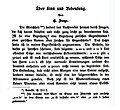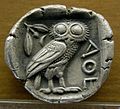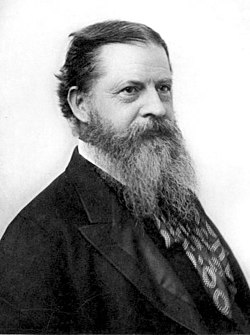The analytic–synthetic distinction is a semantic distinction used primarily in philosophy to distinguish between propositions (in particular, statements...
37 KB (4,578 words) - 04:11, 30 May 2025
A priori and a posteriori (redirect from A priori-a posteriori distinction)
is what Boghossian calls the "analytic explanation of the a priori". The distinction between analytic and synthetic propositions was first introduced...
27 KB (2,936 words) - 15:49, 8 July 2025
adequate explanation of synonyms. Analytic–synthetic distinction Duhem–Quine thesis Internal–external distinction Meaning (linguistics) Meta-ontology...
12 KB (1,490 words) - 01:27, 19 March 2025
Logical positivism (category Analytic philosophy)
unambiguous distinction between analytic and synthetic, categorising knowledge exclusively as either "relations of ideas" (which are a priori, analytic and abstract)...
63 KB (6,900 words) - 19:56, 19 June 2025
Willard Van Orman Quine (category Analytic philosophers)
Dogmas of Empiricism" (1951), which attacked the traditional analytic-synthetic distinction and reductionism, undermining the then-popular logical positivism...
55 KB (6,469 words) - 18:03, 23 June 2025
The fact–value distinction is a fundamental epistemological distinction described between: Statements of fact (positive or descriptive statements), which...
23 KB (2,742 words) - 11:20, 28 July 2025
categories: relations of ideas and matters of fact (see also Kant's analytic-synthetic distinction). Mathematical and logical propositions (e.g. "that the square...
53 KB (6,678 words) - 22:23, 21 June 2025
Hume's fork (category Conceptual distinctions)
Hume's fork asserts that all statements are exclusively either "analytic a priori" or "synthetic a posteriori," which, respectively, are universally true by...
15 KB (1,886 words) - 14:23, 8 June 2025
Kant who introduced the terminology. The distinction concerns the relation of a subject to its predicate: analytic claims are those in which the subject...
6 KB (667 words) - 11:01, 24 May 2025
2021. Retrieved 18 September 2022. Russell, Gillian (2023). "Analytic/Synthetic Distinction". Oxford Bibliographies. Oxford University Press. Retrieved...
208 KB (20,062 words) - 05:48, 22 June 2025
Antithesis between the Synthetic and the Analytic Method in Modern Geometry: The distinction between modern synthesis and modern analytic geometry must no longer...
14 KB (1,712 words) - 23:39, 19 June 2025
Kant further elaborates on the distinction between "analytic" and "synthetic" judgments. A proposition is analytic if the content of the predicate-concept...
115 KB (16,137 words) - 12:38, 24 July 2025
Two Dogmas of Empiricism (category Analytic philosophy literature)
positivists' philosophy: the first being the analytic–synthetic distinction between analytic truths and synthetic truths, explained by Quine as truths grounded...
18 KB (2,549 words) - 11:55, 24 May 2025
Social science Management Analytic-synthetic distinction Logic Critical thinking Lateral thinking Deductive reasoning Analytical skill Analysis Analysis...
5 KB (525 words) - 10:26, 25 December 2024
experience—that is, which are empirical. Second, he makes a distinction in terms of the form of knowledge: Analytic judgements: judgements in which the predicate concept...
153 KB (18,842 words) - 05:33, 28 July 2025
marijuana Synthetic oil Synthetic rubber Synthetic position, a concept in finance Synthetic-aperture radar, a type or radar Analytic–synthetic distinction, in...
2 KB (307 words) - 01:32, 6 July 2025
many self-contradictions implicit in the whole.: 403 Strawson views the analytic argument of the transcendental deduction as the most valuable idea in the...
24 KB (3,044 words) - 03:53, 30 June 2025
theorizing was Harvard philosopher W. V. O. Quine's attack on the analytic–synthetic distinction in "Two Dogmas of Empiricism", published in 1951 in The Philosophical...
93 KB (10,872 words) - 14:48, 15 July 2025
Relativism Skepticism Solipsism Structuralism Concepts Action Analytic–synthetic distinction A priori and a posteriori Belief Credence Certainty Data Experience...
9 KB (997 words) - 16:39, 1 May 2025
Sense and reference (redirect from Sense-reference distinction)
In the philosophy of language, the distinction between sense and reference was an idea of the German philosopher and mathematician Gottlob Frege in 1892...
17 KB (2,213 words) - 21:23, 25 June 2025
certainty). Rationalism has a philosophical history dating from antiquity. The analytical nature of much of philosophical enquiry, the awareness of apparently a...
60 KB (6,961 words) - 03:26, 24 May 2025
Analytic apriori may refer to: A priori and a posteriori Analytic–synthetic distinction Analytic truth This disambiguation page lists articles associated...
160 bytes (47 words) - 16:34, 27 December 2019
interpretation or truth within some logical system. A logical truth (also called an analytic truth or a necessary truth) is a statement that is true in all logically...
100 KB (12,622 words) - 10:23, 28 July 2025
Philosophical analysis (category Analytic philosophy)
current criticisms of the analytic method derive from W.V. Quine's famous rejection of the analytic–synthetic distinction. While Quine's critique is...
10 KB (1,310 words) - 15:05, 24 May 2025
knowing that "2 + 2 = 4". It is the paradigmatic type of knowledge in analytic philosophy. Propositional knowledge is propositional in the sense that...
187 KB (19,036 words) - 06:23, 7 July 2025
Gilbert Ryle (category Analytic philosophers)
not. A distinction deployed in The Concept of Mind, between 'knowing-how' and 'knowing-that', has attracted independent interest. This distinction is also...
22 KB (2,266 words) - 16:03, 26 May 2025
Paradox of analysis (category Analytic philosophy)
altogether. This is a natural response to the rejection of the analytic–synthetic distinction. The paradox is a reformulation of Meno's paradox from Plato's...
5 KB (724 words) - 11:08, 9 March 2025
September 2021. Gupta, Anil (2012). "An Account of Conscious Experience". Analytic Philosophy. 53 (1): 1–29. doi:10.1111/j.2153-960X.2012.00545.x. Jorba,...
96 KB (10,679 words) - 01:41, 19 July 2025
mind focuses elsewhere. The distinction between occurrent and dispositional beliefs is sometimes identified with the distinction between conscious and unconscious...
103 KB (11,991 words) - 18:36, 21 July 2025
Willard V. O. Quine to attack, among other things, the distinction between analytic and synthetic statements. British philosopher Susan Haack, following...
26 KB (2,886 words) - 23:32, 30 May 2025










